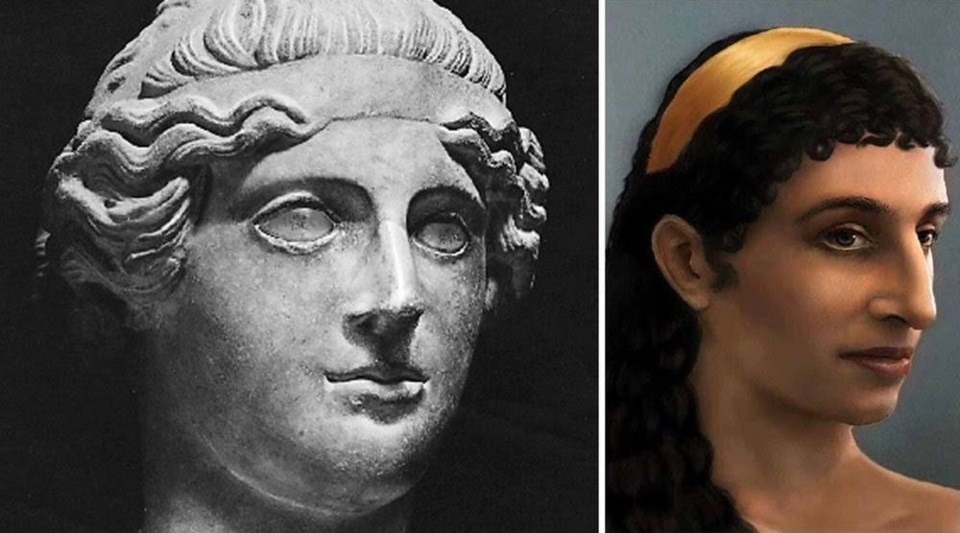By Michael Milton The Art of Seeing
The human voice is the organ of the soul. Henry Wadsworth Longfellow.
A fire is burning at the entrance to a cave somewhere in what we now know as Ethiopia. Two naked men--OK, I'm imagining them naked--you are welcome to put them in a leopard skin wrap if that calms your sensibilities.
In any event, these two early home sapiens are attempting to determine who eats what of their most recent kill. They "speak" by means of a series of grunts, howls and hisses. There is little beautiful (at least by modern man's estimation) in the sound of the hungry repartee. Their cacophony is punctuated by various physical gesturing, air jabbing, stomach smacking, arm waving.
Somehow, a decision is arrived at and they begin to divide up their meal.
Still, in their guttural back and forth, modern man might be able to make out the beginnings of the consonants and vowels which through many passing millennia evolve into language.
As the ions slid by and more subtlety was required in communication, words were invented, accents developed, regional languages grew, all still related, though ever distantly, to the grunts and plosives of the two men in the cave.

Think about the soft "ah" we hear in modern languages in words like Christ, amen, Krishna, alleluia, Mohammed. The word "God" itself is built on the same "ah," a sound which undoubtedly would have been voiced by early man as they gazed up into the sky and saw a meteor shower or an eclipse.
I had reason to consider the evolution of language the other day.
I was walking along El Paseo Drive in Palm Desert—a shopping mecca, much like Rodeo Drive in Beverly Hills or Madison Avenue in New York City.
Just ahead of me sashayed two beautiful young women; spike heels, tight jeans, flowing tops, well- tended hair-dos. I followed in what I hoped wasn't an obvious or creepy way. They stopped to look in a window. I stopped a few feet away and eavesdropped on their conversation.
Sad to say, their superficial loveliness melted away as I took in the sound of their voices. Descriptions like "strident" and "cawing" barely cover the harshness of their intonation, their tonality originating somewhere near the ninth circle of Dante's hell. They were victims of upspeak, ending every observation with a question mark, "I love these shoes? Right? OMG? These would look so hot on you?

"Would they or wouldn't they look good?" I wanted to shout.
Their way of speaking was an extension of what I used to know as "valley girl" talk. Their racket was flat, childish, whiny. Sisyphus' daily appointment with that rock suddenly seemed preferable to an infinity spent to listening to either of them.
I thought about the men each might marry, men too blinded but the shiny surface of their brides to pay much attention to the fact that these unmelodious voices came with the fancy wrapped packaging. At this point, the men wouldn't be too worried about what an irritant their wife's voices were, not now while their breasts were artificially perky, that they both still had definable waists, and "varicose" sounded like a pretty town in Romania they'd like to visit sometime in the future.
And men, I'm speaking to you, too! Men's voices can be equally annoying but men it is, I have heard, a proven fact they simply express themselves verbally less than women.
It struck me how the sound of an examined voice—a voice that has roots spread out into the heart and the spirit—partially reveals the real us to the world.
Years ago, a friend of mine from the Bronx, New York, wanted to become an actress. A Bronx accent, to my ear, is nearly as hard and harsh-sounding as I imagine the "conversation" between our cavemen. My friend didn't even realize she had an accent when she began her years at the New York City School for Performing Arts. It wasn't until her speech teacher required that each of her wards tape their voices she heard herself for the first time.
And she was appalled.
As she worked to find a more regionally neutral sound in her speaking voice, in addition to allowing her voice to settle into its most natural place for intoning--she also had to deal with her family's response to her more rounded vowels, her clearer enunciation, her new way of bringing varied emotions into her voice.
They did not support her efforts.
"You're showing off!" "You're getting above yourself." "You are trying to shame us."
Fortunately, my friend was not deterred and in her years in class, she discovered she possessed a gorgeous speaking voice, without an accent, full of soulful music, a voice one could listen to every day until the end of time, a voice that felt intimate because it was. She had found the highway from her larynx to her truest places of expression. And it was beautiful.

I ought to explain when I say "beauty," I'm not saying that there is a measure for what is beautiful in a voice since when we speak from a place of truthful introspection, whatever emerges will be beautiful.
Cleopatra is said to have not been a great beauty. Her profile on coins shows a jowly woman with a hooked nose. No one from her era ever wrote that she was a stunner. Historians speak of her intelligence, her vision, and most of all, the tone of her voice. She was educated by the greatest minds of the Mediterranean region. She spoke a dozen languages fluently and had studied the art of speaking and rhetoric. Her seduction of Julius Caesar and later Marc Antony no doubt had more to do with the intelligence in her voice than anything else.
My women (and men) friends are often on diets. Or re-dedicating themselves to exhausting workouts at the gym. Or spending time tweaking their tan lines. It struck me after that day on El Paseo that what a person needs to be truly seductive is an examined vocal technique.
When I was in college and after an audition for a play, one of my fellow thespians asked in perfect sincerity, "Oh, do you see the character as gay?"
I was mortified something in my voice had given away my then most guarded personal secret. And the voice I used at that audition wasn't even my own. I had made the decision I loved the sound of Michael Crawford's voice in the movie "Hello Dolly," a voice that had gotten me some acting parts and I had decided it was my "real" voice.
It was light, thin, boyish and nasal.
And not me.
From that day forward, I began to push my voice down onto my larynx. When I spoke you heard more a rumble than actual words. It was my idea of a super masculine voice. It was also exhausting. A short conversation left my throat sore and my mouth dry.

I read recently that the most beautiful instrument of all is the human voice and that it is the most difficult to master.
I was helped along my journey because I loved to sing. I discovered that the more I pushed my voice down for that 'manly' sound, the more habits I developed which clearly affected my ability as a singer. I had a considerable amount of backtracking to do to uncover the sound of my real voice, in fact, to find out who I was; I discovered a voice that reflected my life experiences, my heart, my spirit. Ironically, I was searching for the sound of something I had never lost, simply covered over.
The journey towards uncovering our true sound is absolutely worth the frustration, the confusion and the anxiousness which go along with the letting go of some 'idea' each of us has as to the way we want to sound or think we ought to sound.
"What do I do to get my voice more like yours?" someone asked me not too long ago.
Like the search for anything of personal value, the journey isn't a fast one.
Therapy? Meditation? Uncovering our real voice is a trip that moves down the road of discovery that we are not only who our parents thought we were, not who our religion told us who we were, not who our friends needed us to be.
Voice lessons? Absolutely, even for folks who insist they don't sing. Singing lessons are invaluable in helping us find the melody that resides in our real voice. When I was spending years pushing my voice down, I had only one or two colors of sound I could rely on. Actors require a plethora of colors to bring characters to us on screen or on the stage. How nice to have that choice in our day to day lives.
Speech therapist? A good therapist can quickly find out all the useless habits we have piled on our real voices and have remedies for them.
"Peter Piper picked a peck of pickled peppers" or "How much wood could a wood chuck chuck if a wood chuck could chuck wood" repeated over and over helps with the plosive of the 'p' and vocal agility. Speech therapists have a whole Santa's sack full of hundreds of other tricks to help loosen the tongue, the jaw, the larynx to enable us to find the directness in each of our voices.
Or try a few months in Toastmasters--a group devoted to learning the ins and outs of public speaking. One's vocal habits are quickly revealed and easily repaired.

The search is really less for the most beautiful voice we can imagine—that would simply be imitation--but for the honesty in our own voices. What is sexier than someone who knows who they are and can address a topic with that sort of surety? A lady friend of mine in Boca Raton, Florida has a lovely voice, full of expression, not an actress but a woman who has lived fully, spends time contemplating her place in the world and whose voice expresses her kindness, her intelligence, her sweetness.
There have been times I have felt I sounded as phony as Gwen's parents thought their daughter was sounding as she worked to shed her Bronx accent. Rounding out vowels, relaxing consonants, having confidence in pauses and an awareness of easy breathing are all trails leading to our truest sound but the change can feel awkward and yes, even phony. It takes some getting used to.
Forget about the diets. Forget about two hours a day of exercise. Our bodies will ultimately betray us. But the voice, with any luck, has endurance. And there is much fun to be had along the journey. You will notice people gradually stop asking "What did you say?" as you learn to support and use easy breath control. You will be surprised by the moments when your voice and your truth line up and you find yourself sounding like, well, yourself.
Isn't that all of our life's goal? To uncover who we are and to have time to share that person with everyone we know in the short time we inhabit the planet?
"We don't receive wisdom; we must discover it for ourselves after a journey that no one can take for us or spare us." Marcel Proust
So then, altogether; do re me fa sol la te do!



